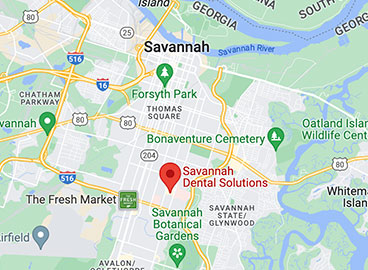
TMJ disorder is a condition of the temporomandibular joint (TMJ), where the lower jaw attaches to the skull. The condition is characterized by pain and sometimes limited range of motion in the jaw. TMJ disorder is not only uncomfortable, but it can affect your overall health and wellness if it is not treated. Dental issues and malnutrition are common concerns resulting from TMJ disorder.
What causes TMJ disorder? How is it treated and prevented? Here’s why it occurs and what you can do about it.
Potential Causes of TMJ Disorder
The underlying cause of TMJ disorder is inflammation of the tissues surrounding the joint. But what causes the inflammation? Here are some potential aggravators.
- Teeth grinding/clenching. If you grind or clench your teeth, whether at night when you’re sleeping or during the day, the excess pressure it puts on your TMJ can cause inflammation of the muscles, tendons, and ligaments. Many people are unaware that they grind their teeth because it happens during the night while they sleep or they do it unknowingly during the day as a result of stress or a nervous habit.
- Trauma to the jaw. Getting bumped or hit in the jaw can injure the joint or even misalign your jaw. The problem may be apparent right away or it may progress over time after the injury. The more you use the joint by talking or chewing, the more irritated it may get until you develop TMJ disorder.
- Excessive chewing. If you’re always chewing gum or crunching on nuts or hard candy, the repetitive movement of the jaw and force of chewing takes its toll on the TMJ. The muscles, tendons, and ligaments can become inflamed, causing pain and limited range of motion when opening and closing your mouth.
- Arthritis. Arthritis is defined by pain and stiffness in one or more joints. If you have arthritis in other joints, it is not uncommon to experience TMJ disorder in conjunction.
- Autoimmune diseases. The most common symptom of autoimmune disease is inflammation in the body, which often causes pain in the joints. If you suffer from an autoimmune disease, it could be the cause of your TMJ disorder.
Treatment for TMJ Disorder
Now that you know what causes TMJ disorder, it helps to know how it can be treated. Minor cases of TMJ disorder may be relieved with basic remedies, but severe cases may need more intervention. Here are some treatment options for TMJ disorder.
- Natural home remedies. If you experience pain in your jaw or limited movement, the first thing to do is rest your jaw as much as possible. Eat soft foods and avoid chewing for a few days. Keep talking to a minimum. You can also apply ice to your jaw to reduce swelling and inflammation. Continue these treatments until you experience relief.
- Medication. Try taking an over the counter pain reliever, such as acetaminophen or ibuprofen. Anti-inflammatory pain medications, as their name suggests, helps to reduce inflammation in the joint, so ibuprofen may be more effective than acetaminophen.
- Professional treatment. If home remedies and over the counter medication has not provided relief, refer to your dentist for recommendations. Your dentist will most likely want to see you in their office to assess your condition first before providing additional treatment. Prescription medication, such as pain relievers and muscle relaxers may be the next step. Your dentist may also recommend that you get a mouthguard if you grind or clench your teeth. Severe cases that don’t respond to any other treatment may require surgery, but such cases are rare.
Savannah Dental Solutions Provides Treatment for TMJ Disorder
If you’re experiencing pain or other symptoms of TMJ disorder, Savannah Dental Solutions can help. We will evaluate your condition and recommend the best course of action to treat and prevent TMJ disorder.
Call (912) 354-1366 or contact us today to schedule an appointment. We look forward to providing you with relief from your TMJ disorder.






